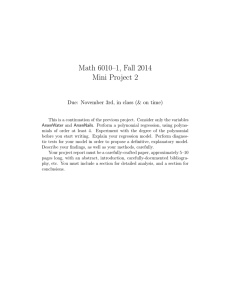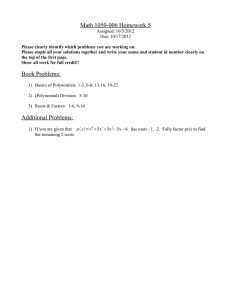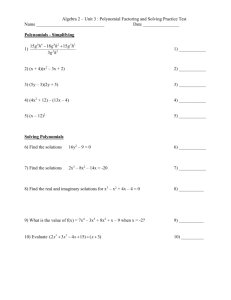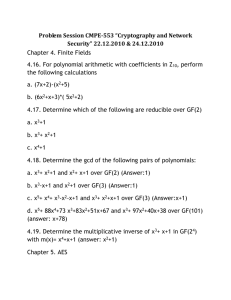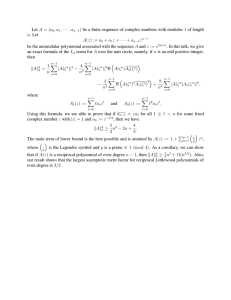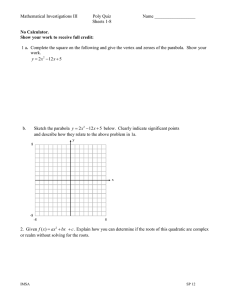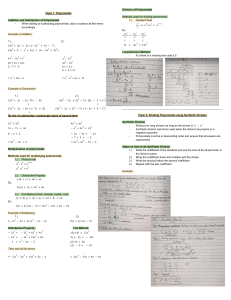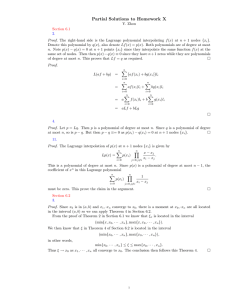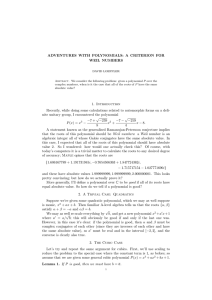Factorising and expanding polynomials; sketching graphs of
advertisement
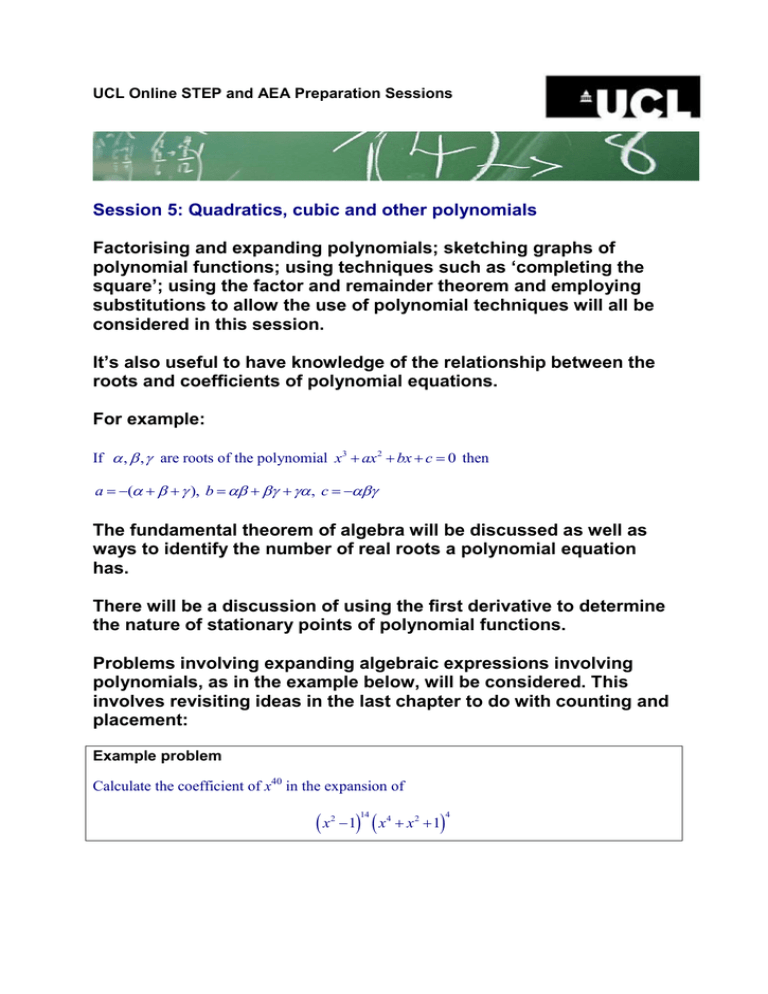
UCL Online STEP and AEA Preparation Sessions Session 5: Quadratics, cubic and other polynomials Factorising and expanding polynomials; sketching graphs of polynomial functions; using techniques such as ‘completing the square’; using the factor and remainder theorem and employing substitutions to allow the use of polynomial techniques will all be considered in this session. It’s also useful to have knowledge of the relationship between the roots and coefficients of polynomial equations. For example: If , , are roots of the polynomial x3 ax2 bx c 0 then a ( ), b , c The fundamental theorem of algebra will be discussed as well as ways to identify the number of real roots a polynomial equation has. There will be a discussion of using the first derivative to determine the nature of stationary points of polynomial functions. Problems involving expanding algebraic expressions involving polynomials, as in the example below, will be considered. This involves revisiting ideas in the last chapter to do with counting and placement: Example problem Calculate the coefficient of x40 in the expansion of x 2 1 14 x 4 x 2 1 4

